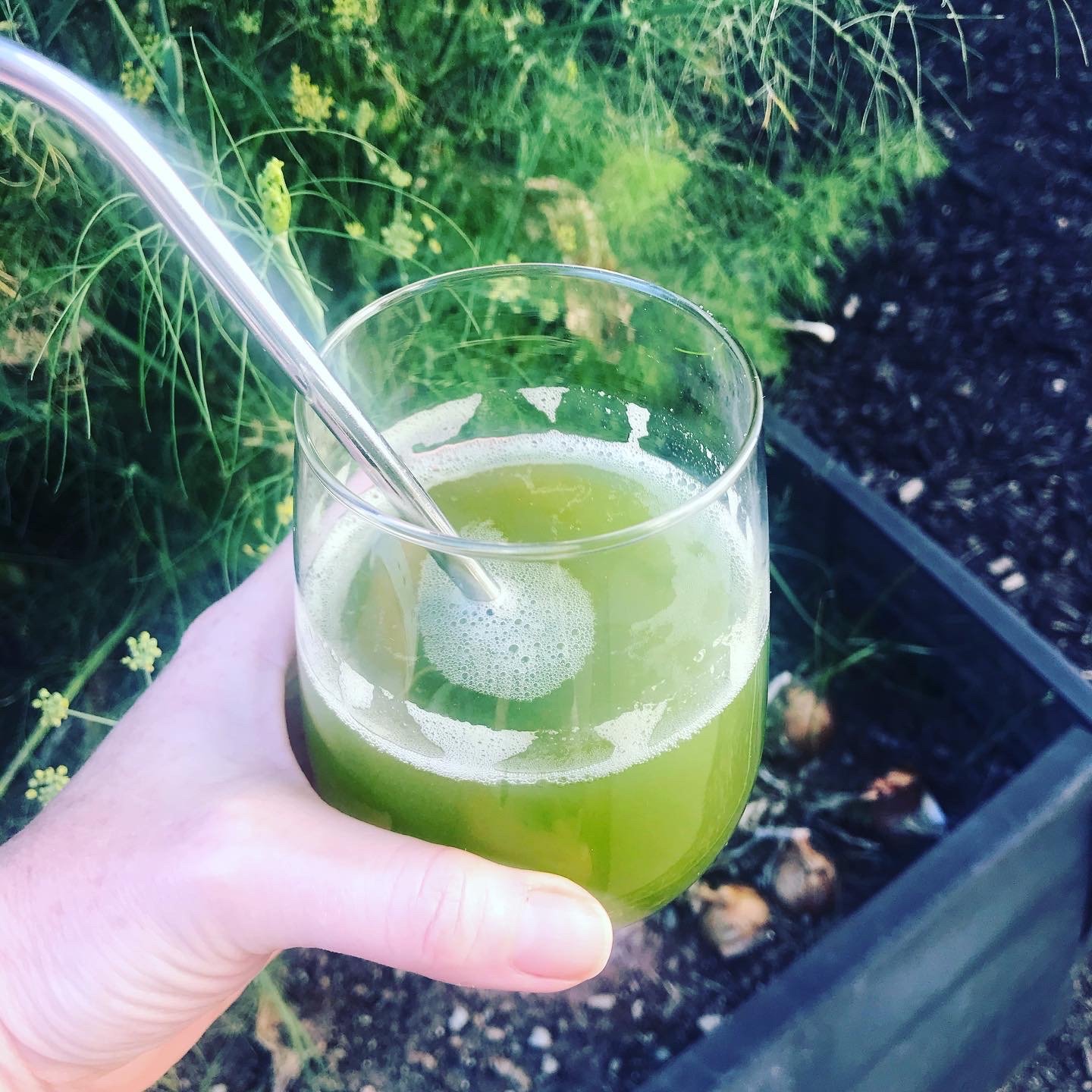Tips for Dry January Success
If you are taking a month off from drinking alcohol, you are not alone. Going “dry” for the month of January is on trend. “Dry January” has become a robust movement that started in 2012 from a public health initiative in the UK. Now millions of people around the globe are expected to abstain from alcohol this month.
Wondering if this is for you? The research shows that pushing the reset button on drinking after the holidays can benefit everyone, not just heavy drinkers. All types of drinking patterns, from light (1-6 drinks per week) to heavy (3 or more drinks in one day or more than 7 per week for women; more than 4 drinks in one day or more than 14 per week for men), report short-term improvements in deeper sleep, better food choices, improved lab markers, and even weight loss.
Why do Dry January?
Everyone can benefit from reevaluating their relationship with alcohol. Being alcohol-free for 31 days reminded us that we don’t need alcohol to have fun, relax, or socialize. Additionally, we strengthen our skills needed to manage our drinking. That means that for the rest of the year we are better able to make decisions about when we drink and how much, so we can avoid slipping into drinking more than we really want. In fact, a University of Sussex study showed that 70% of people who took part in Dry January were still drinking less six months later, especially if they use the Try Dry app developed by Alcohol Change UK. Other short term perks like better sleep, more energy, healthier skin, and sharper concentration seem to persist past the 31-day dry challenge too. And, even those who fell short of abstaining the entire month were drinking less after 6 months.
In another study from the UK, researchers confirmed the old adage that avoiding alcohol gives our liver a break. The participants of the study saw improved liver enzymes even when they kept their eating, smoking, and/or exercise habits the same. The study participants also enjoyed reductions in weight, blood pressure, insulin resistance, and cancer-related growth factors.
Dry January Benefits:
What you'll notice Quickly(1):
70% of people sleep better
86% of people save money
65% of people notice generally improved health
Short-term medical benefits(2):
Reduced diabetes risk
Improve blood pressure (BP)
Lower cholesterol
Reduced level of cancer-related proteins in the blood
Improved liver function tests
Long-term benefits:
Alcohol is linked with more than 60 health conditions including liver disease, high blood pressure, depression and seven types of cancer. Cutting back on alcohol long-term reduces your risk of developing these conditions.
Tips to improve your success completing a 31-day alcohol free challenge:
Fennel Shrub Mocktail (Click here for the recipe.)
Find a substitute non-alcoholic drink. For social situations, or when you crave a cocktail after a long day, reach for alcohol-free beverages like sparkling water, kombucha, or virgin beverages (non-alcoholic versions of alcoholic drinks.) There are many new and delicious non-alcoholic options on the market these days. I personally like to make a mocktails by combining sparkling water (love my soda stream) with a splash of bitters and an herb or citrus garnish. Experiment with a variety of bitters for fun flavors and combinations.
Non-alcoholic beer or wine is also an option, but some brands still contain up to 0.5% alcohol by volume, so check the label. Sugar is often added to these beverages to improve the taste, so try to choose ones that are low in sugar.
“Shrubs” also make excellent alternative to alcohol. Shrubs are sweetened vinegar based syrups that can be mixed with sparkling water. They can be fruity, spicy or herbaceous with a kick from the vinegar. I like to use apple cider vinegar because it has health benefits on its own.
Avoid temptations. Keep alcohol out of your house. When you are invited to someone’s home, bring your favorite non-alcoholic drinks with you to share.
Create a support group. Let friends and family know about your intentions and encourage them to keep you accountable. Better yet, enlist someone to do the challenge with you.
Use the Try Dry app. This free app is sponsored by the non-profit Alcohol Change UK. It helps you track your drinking, set personal goals, and offers motivational information like calories and money saved from not drinking. It’s aimed at cutting back on or cutting out alcohol, depending on your choices. Use of the app has been shown to double your success of completing a dry month challenge.
Don’t give up. If you slip up, don't feel guilty. Tomorrow is a fresh start.
Warning:
Stopping drinking suddenly can be very dangerous, and can even kill you, if you are dependent on alcohol. If, after a period of drinking, you experience any of the following symptoms, you may be dependent on alcohol and you should NOT suddenly stop drinking completely: seizures, hand tremors, sweating, visual hallucinations, depression, anxiety or insomnia. You can still take control of your drinking. Speak to your health care provider to get help for you to reduce your drinking safely.
References:
1. Alcohol Change UK. Accessed 1/7/2022.
2. Mehta G, et al. BMJ Open 2018;8:e020673. doi:10.1136/bmjopen-2017-020673
3. Thinking of trying Dry January? Steps for success. Harvard Health Publisher. Accessed 1/7/2022.
HOW ABOUT A “QUARANTINI?”
FIRE CIDER MOCKTAIL RECIPE
ELDERBERRY SHRUB MOCKTAIL RECIPE


